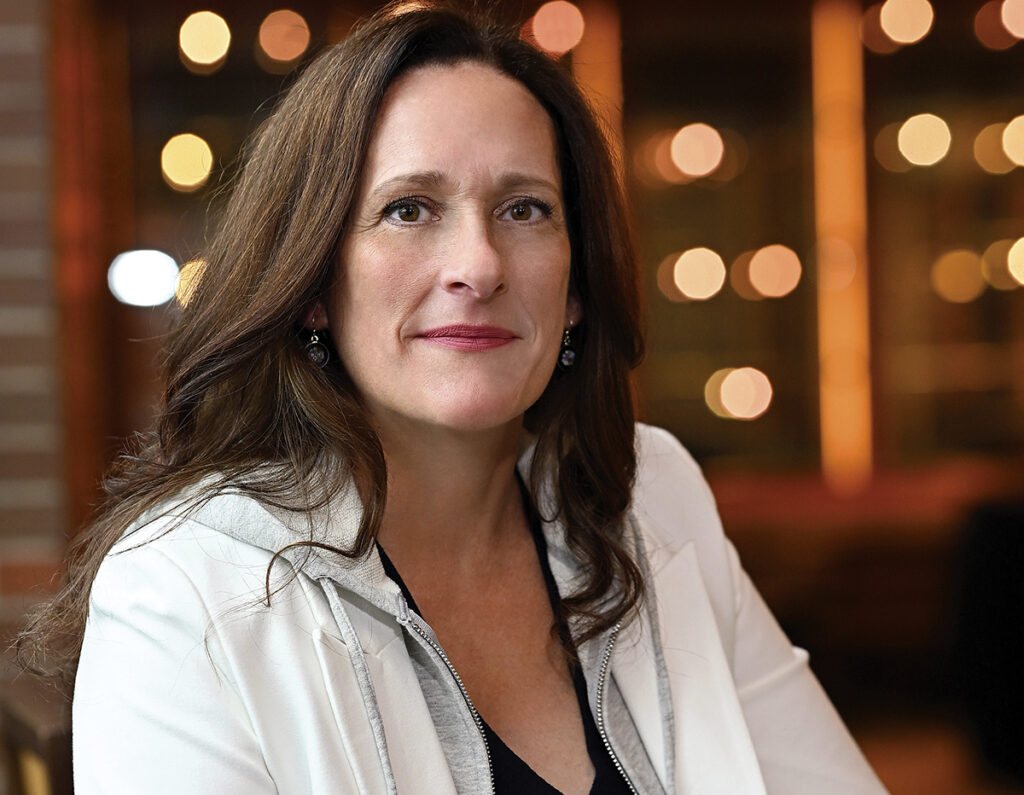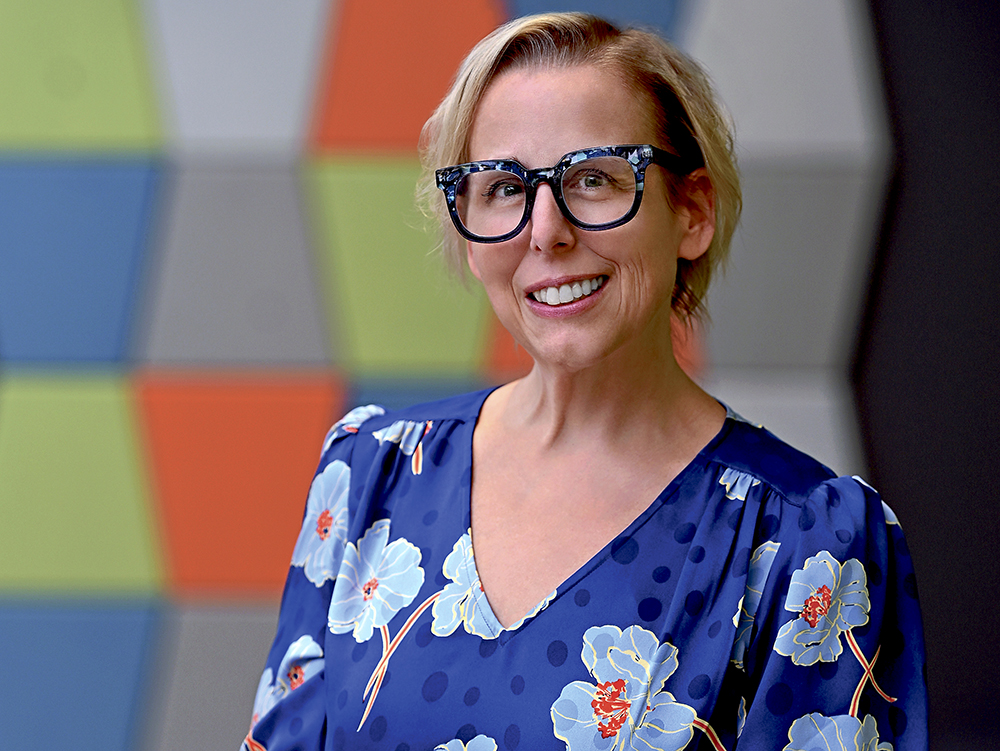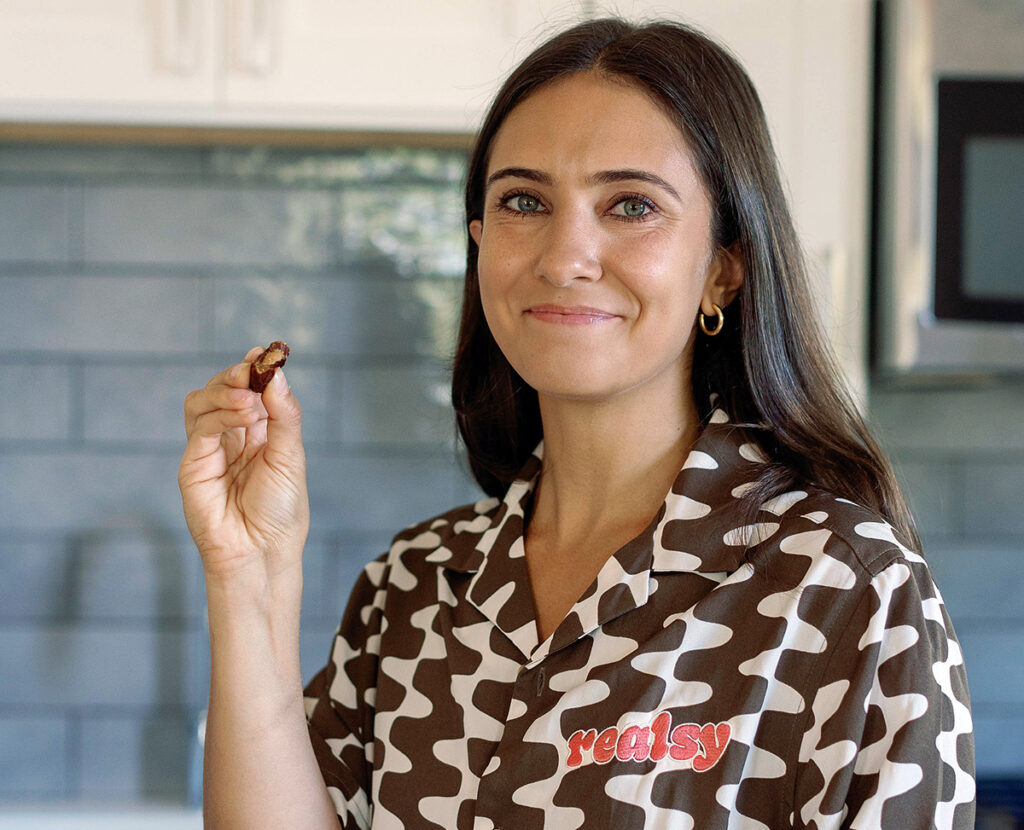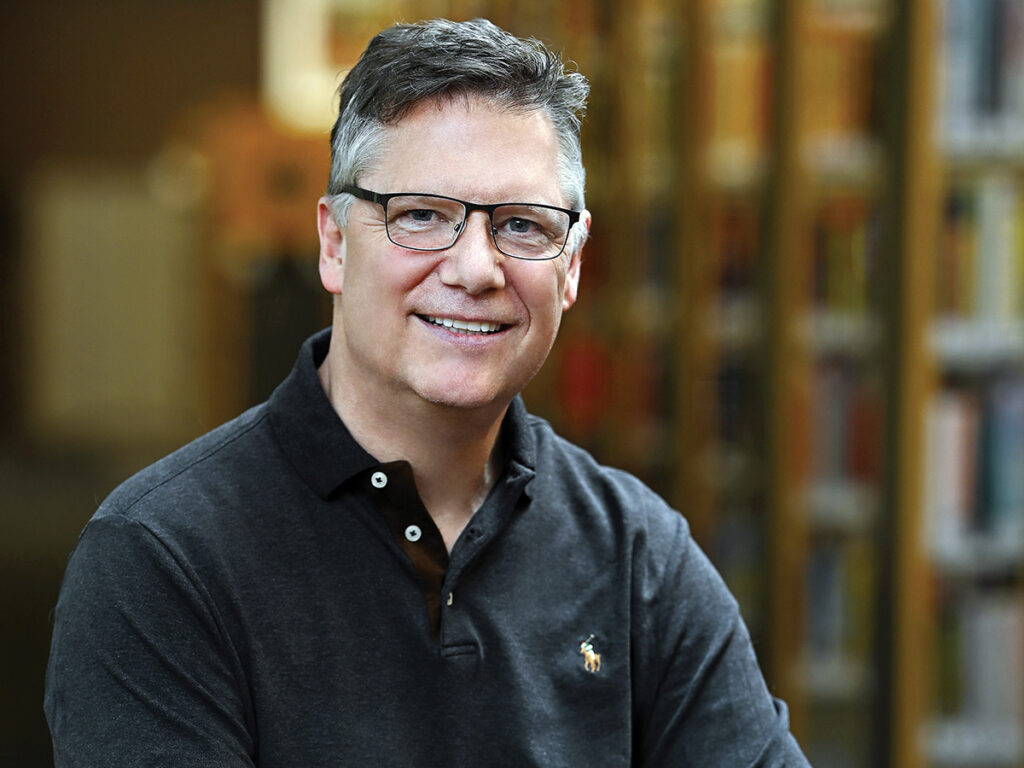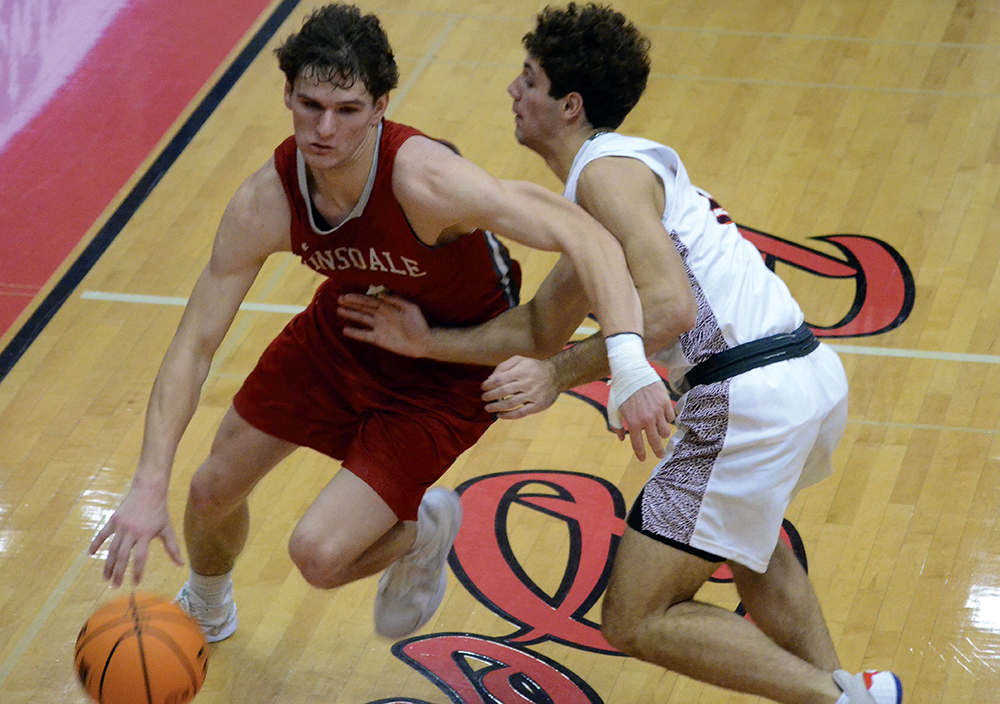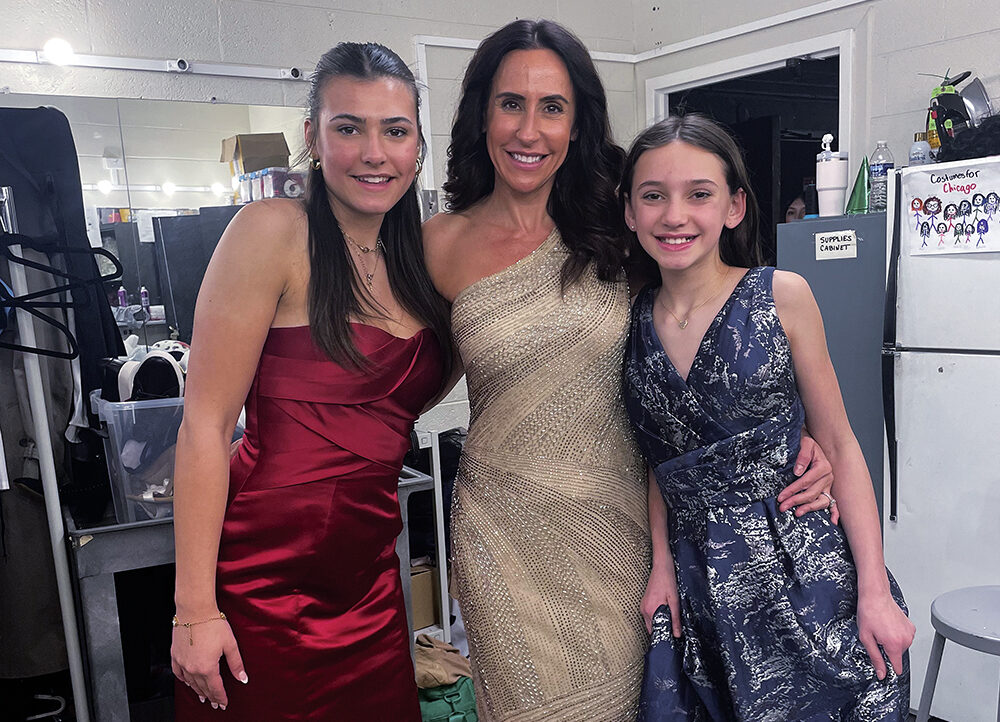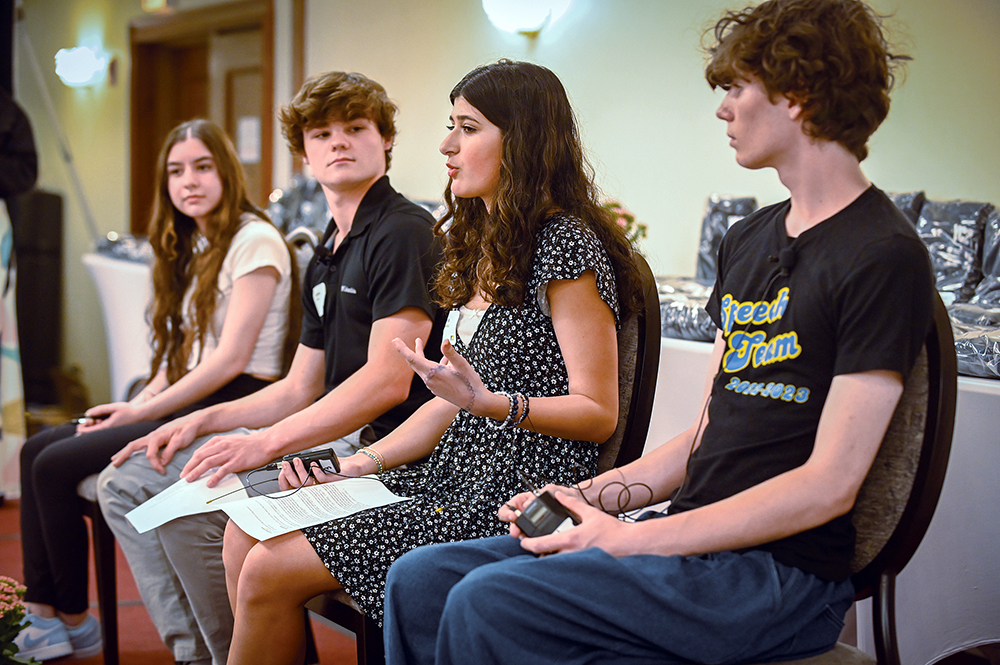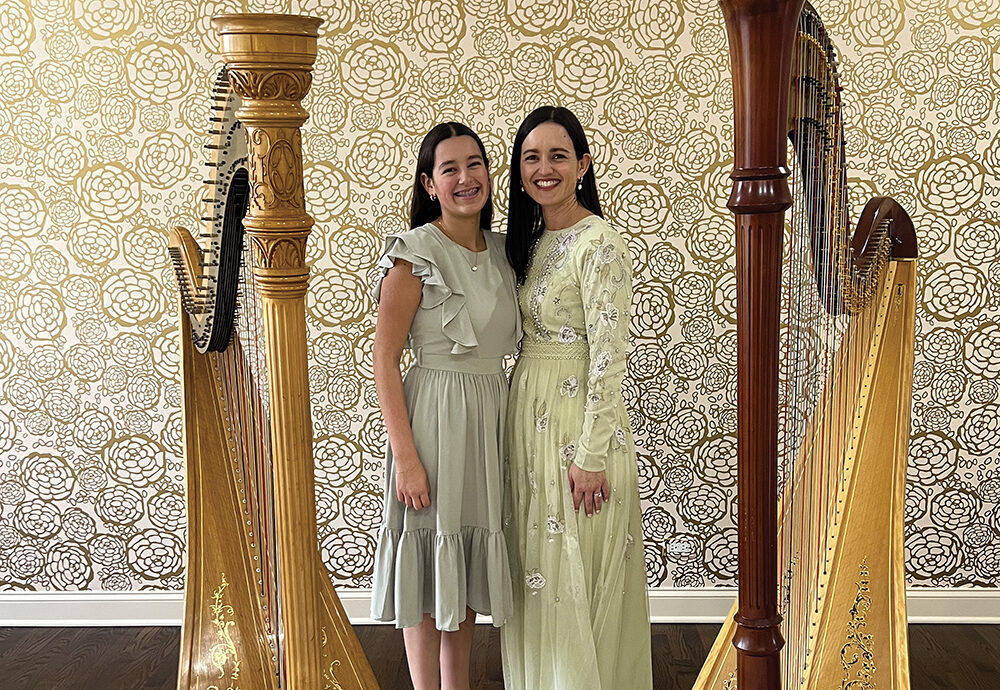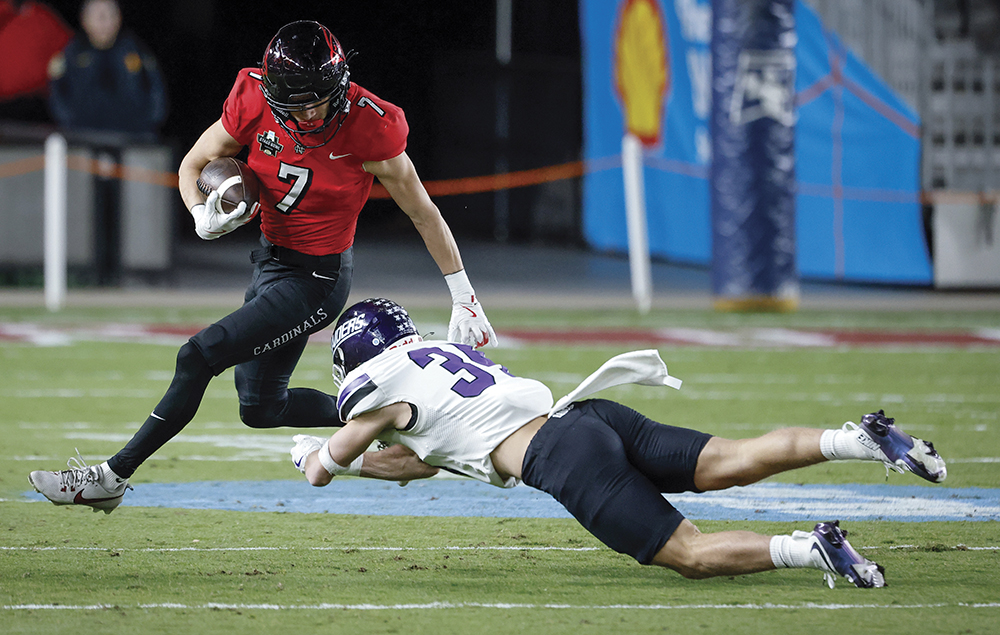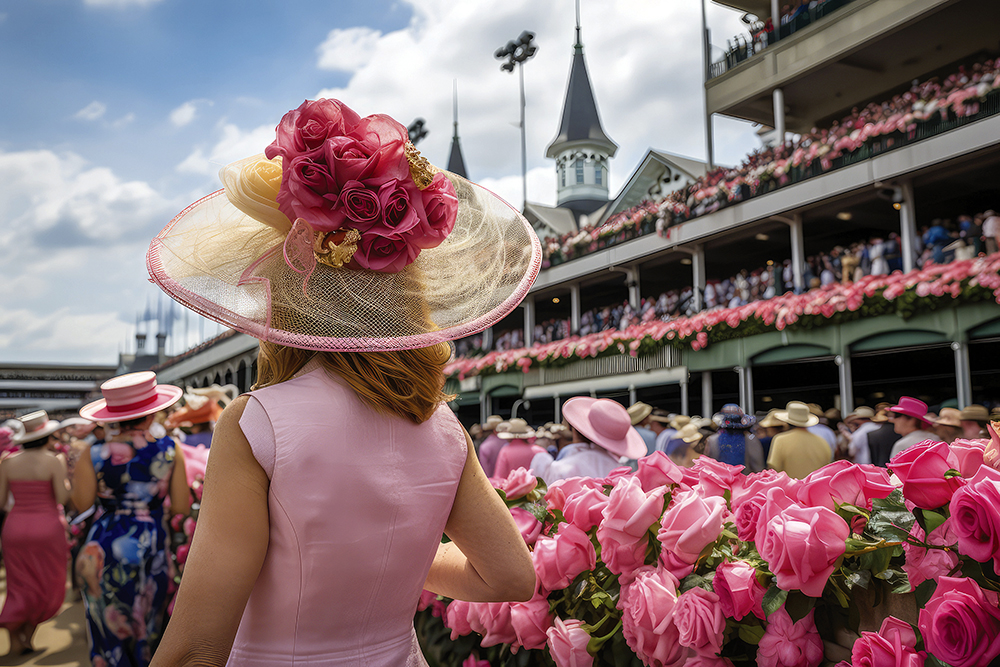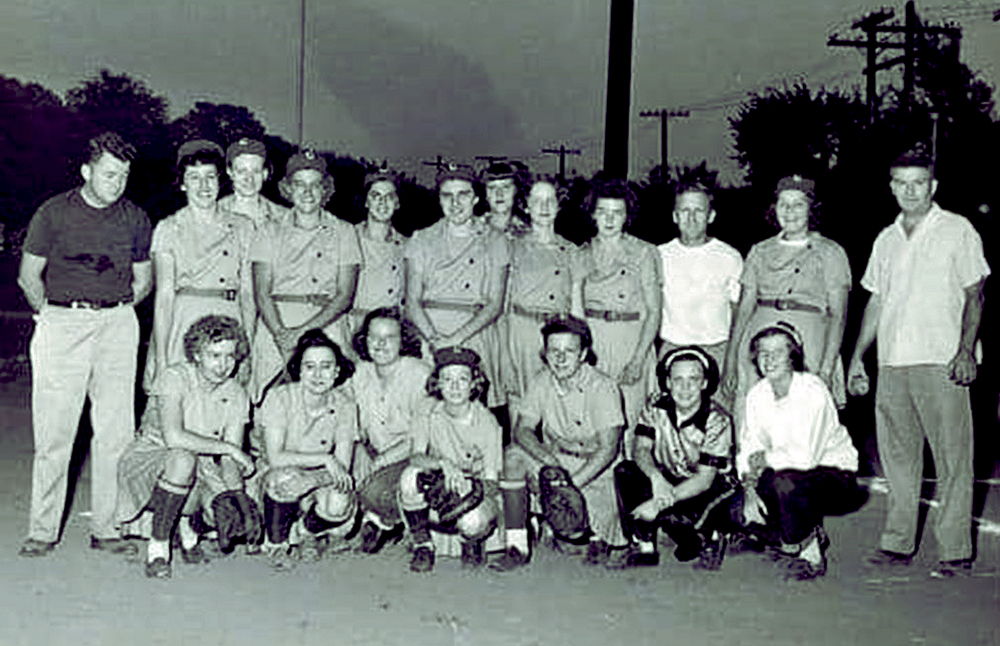Kendall Gretsch at the Paris Games
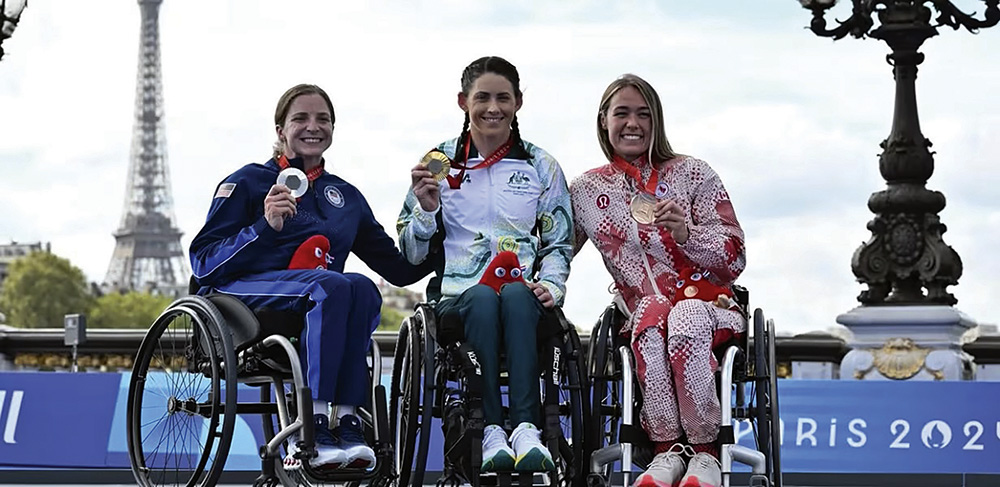
Hometown Paralympian brings home the silver medal
By Maureen Callahan
Downers Grove native Kendall Gretsch has a strength few possess. This Team USA member has medaled in both the summer and winter Paralympic Games. As a biathlete (winter games – Nordic skiing and shooting) as well as a triathlete (summer games – swimming, cycling and running), she never has an off-season.
This seven-time medalist and Downers Grove North graduate is a world-class athlete.
During the 2020 games, the world watched with bated breath as Gretsch captured gold in Triathlon at the Tokyo Paralympic Games. She stole the win from Australian Lauren Parker at the last second – literally! It was a moment that will live forever in Olympic history.
Just back from this summer’s Paris Games – with a silver medal in hand – she carved out time to chat with Contributing Editor Maureen Callahan.
Downers Grove Magazine: What were the biggest differences between the Paris and Tokyo Paralympics Games?
Kendall Gretsch: The games definitely had a different experience this time around. In Tokyo, nobody was allowed to attend the events because of COVID-19, including other competitors. Everything was empty, whereas, in Paris, I was able to attend the swimming and track and field events. Just being able to cheer on friends at other events was one of the best things about the Paris Games. Even in Pyeongchang (2016), my events were on different days, so I was racing the whole time, which made it hard to enjoy the surroundings. On this trip, my family and I were able to tour around Paris after my race, which we really enjoyed.
DGM: Did you do anything different to train this time?
KG: My teammates and I were able to go to France several weeks before the Games to train with our French competitors in Vichy (central France). There were lots of good options for bike riding and running. It really was the perfect setup for our training. Some of the rooms there were actually climate-controlled. We [Team USA] live in Colorado, so it was important that we didn’t lose altitude adaptation. We were able to set the room to the same altitude as our home while we trained at sea level. So, it was the ideal scenario for training.
DGM: How was the racecourse in Paris?
KG: The actual racecourse was amazing! It wove through so many of the city’s interesting sites and monuments. That part of it was great. But because of the Seine, there were a few unknowns that made it a bit more interesting. Paris got a lot of rain this year, so the current in the Seine was three times stronger than usual, which made it more difficult for the swimming portion. There was talk of moving the race if the currents were too great, but many of the competitors had adjusted their training so they would feel stronger swimming in the currents. Our race was moved back a day due to water quality in the Seine.
DGM: Is it difficult, psychologically, when your event gets moved?
KG: You can only control so much, and there are always unknowns. It’s just part of triathlon racing. My teammates and I knew there was a possibility of the race getting postponed, so it wasn’t a total surprise. The night before we were supposed to race, I had my usual pre-race energy and nerves, but in a good way. When it got postponed, the challenge was finding a way to stay in the zone and maintain the feeling.
DGM: Were you happy with the outcome of the race?
KG: I was happy with my race, but I felt like there was a little more possibility. To be honest, for whatever reason, I didn’t feel completely at my best that day. It’s not uncommon in racing – you don’t have a great day every time you race. You learn to respond to how the day is going. I realized at several points during the race that it would be very difficult to make up the time needed to catch Lauren [Parker, the Australian gold medalist], but I also live by the mantra that the race is never over until it’s over, so I just kept trying and gave it all I had that day. But that’s part of what makes every Olympic event so special to the competitor. You have that moment of that day. If you can have that awesome race, it’s just so sweet. So, I was very excited for Lauren when she got that moment. She did great. I was happy for her.
DGM: How did the Paris Olympic Village compare to the one in Tokyo?
KG: The Village was amazing! It felt like the most complete one I have seen so far. We stayed about 45 minutes north of the city in St Denis. The dining hall was an old train station. There was a coffee shop where you could take a picture from your phone, and it would appear on top of your latte! Another fun thing was the to-go food station, where they brought in a different Michelin star-rated chef every night. There was a room with huge TVs just for Team USA athletes to watch any event we couldn’t get out to in person. Honestly, it was a great place.
DGM: This was your third summer games experience. Do you still feel like a strong contender?
KG: Luckily, with an endurance sport, you tend to get stronger with age! So, yes, I still feel strong. The next summer games are in L.A. in 2028. I’m still not exactly sure yet what those will look like for me. At this point, I’m going to take it year by year and see how it’s going.
DGM: What’s next on the horizon?
KG: My main focus right now is to take a little time off before I start training for the Milan Winter Games. I’ve been on the Triathlon Team for ten years and the Biathlon Team for seven years. I love the lifestyle. We travel to a lot of interesting places and get to see so much. But it’s also exhausting. At some point, I will probably be ready to go back to a normal lifestyle.
See you at the 2026 Milan Winter Paralympic Games!
Follow Gretsch on TeamUSA.com.
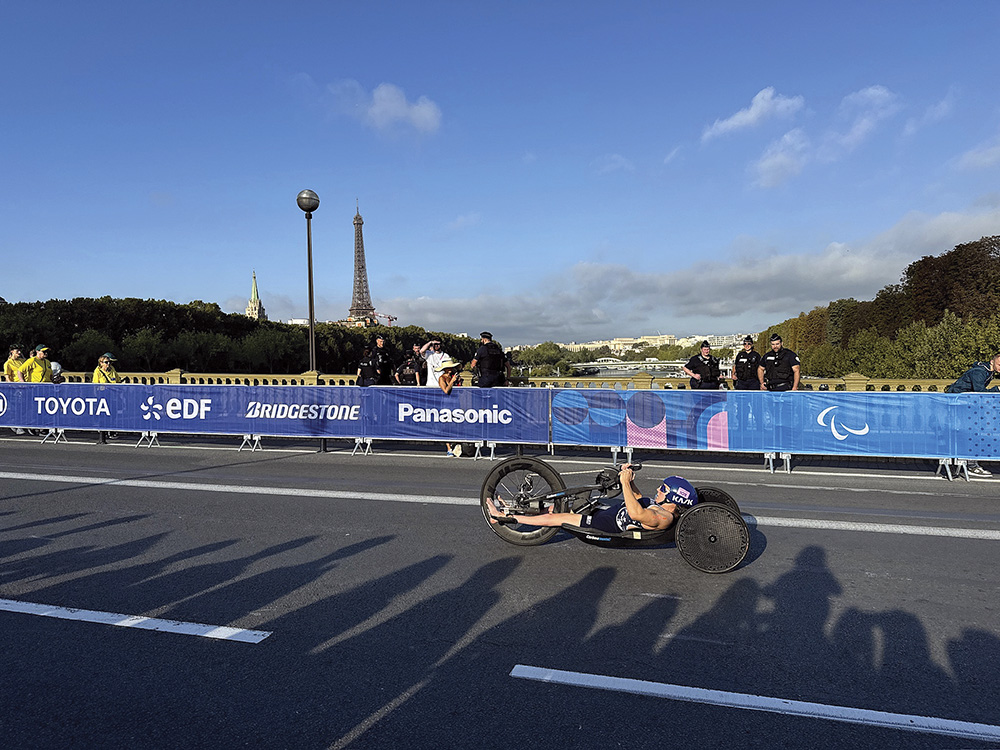
Gretsch pedals through the cycling portion of the Triathlon
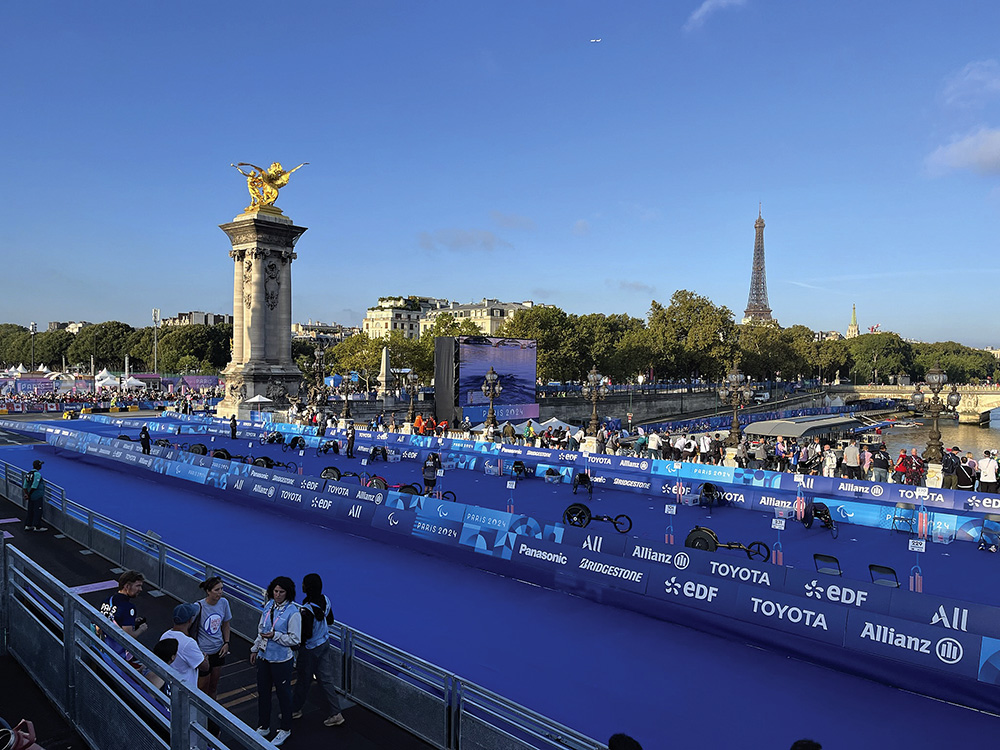
The 2024 Paris Paralympic Racecourse


